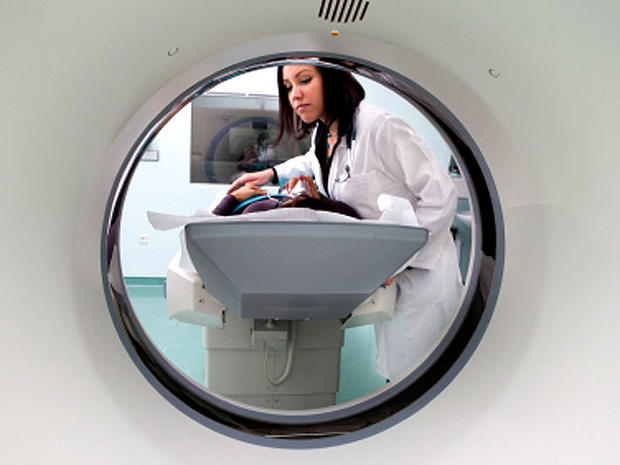Rising cost of cancer sparks talk of crisis
(CBS) Will the high costs of treating cancer bankrupt the world's economies?
Pictures: Got cancer? 10 secrets for better decisions
A new report says more people are getting cancer than ever before. And while cancer-care may be more advanced than ever, it's also more expensive - and that suggests some countries may not be unable to afford it.
"We are at a crossroads for affordable cancer care, where our choices - or refusal to make choices - will affect the lives of millions of people," study author Dr. Richard Sullivan, a cancer researcher at King's College of London and member of The Lancet Oncology Commission, said in a written statement. "Do we bury our heads in the sand, keep our fingers crossed, and hope that it turns out fine, or do we have difficult debates and make hard choices within a socially responsible, cost-effective, and sustainable framework?"
The report - published in the September issue of Lancet Oncology - put the worldwide cost burden for cancer care at $895 billion in 2008. By 2030 there will be at least 22 million new cancer patients, and new cancers are estimated to tack on another $286 billion in costs.
What's driving up costs? The authors point to several factors, inlcuding the aging population, and that richer countries overuse tests that may not always be necessary. The authors say some higher income countries live in a "litigation-driven culture," where doctors order unnecessary tests and treatments so they don't get sued for malpractice. Rich countries also use more expensive diagnostic equipment, and futilely "over-treat" terminal patients who have little chance for survival. More than half of the $286 billion price increased is linked to treatment, where some newer drugs cost upwards of tens of thousands of dollars per patient.
For example one prostate cancer treatment, Provenge, costs more than $100,000 for three doses, and only improves survival by several months, Reuters reported.
The authors say affordable cancer care can be introduced to patients worldwide without detracting from quality of care.
How? The authors say that healthcare systems around the world need to be completely revamped. Patient treatment models need to change, as well as the models that reimburse or give doctors incentives for prescribing certain treatments. The authors want patients, politicians, and the public to be more educated about how much cancer treatments can cost, so the issue is brought to a public debate that can lead to radical change.
"Political tolerance of unfairness in access to affordable cancer treatment is unacceptable," the authors wrote. "The cancer community needs to take responsibility and not accept a sub-standard evidence base and an ethos of very small benefit at whatever cost; rather there should be fair prices and real value from new technologies."
The full report by the Lancet Oncology Commission can be found here.

